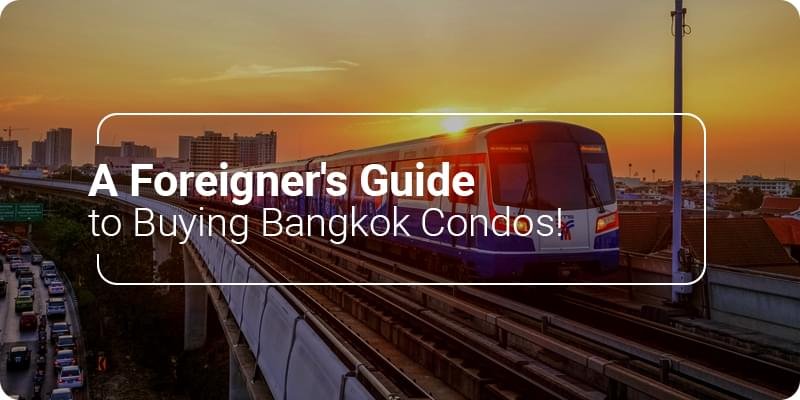
Bangkok is rapidly transforming and its urban landscape is constantly being reshaped.
The vibrant city’s modernization, gentrification and the relentless pace of its development is creating massive opportunities for property investors.
However, due to the language barrier and Bangkok’s unique property standards, foreign investors are often uncertain where to start their search and what to expect. In many cases, the overload of conflicting information provided by online resources, property agents, developers and other investors can create even more confusion.
This guide will aim to simplify the process of buying condos, providing a straightforward and easy to follow roadmap!
This guide will explore the following topics:
- Can Foreigners Own Property in Thailand?
- Choosing Resale Properties or Off-Plan Projects.
- Property Search Factors to Consider.
- Where to Buy Property in Bangkok?
- The Condo Buying Process.
- Condo Financing and Mortgages.
- General Cost of Owning a Condo in Bangkok.
- Market Research and Resources
1. Can Foreigners Own Property in Thailand?
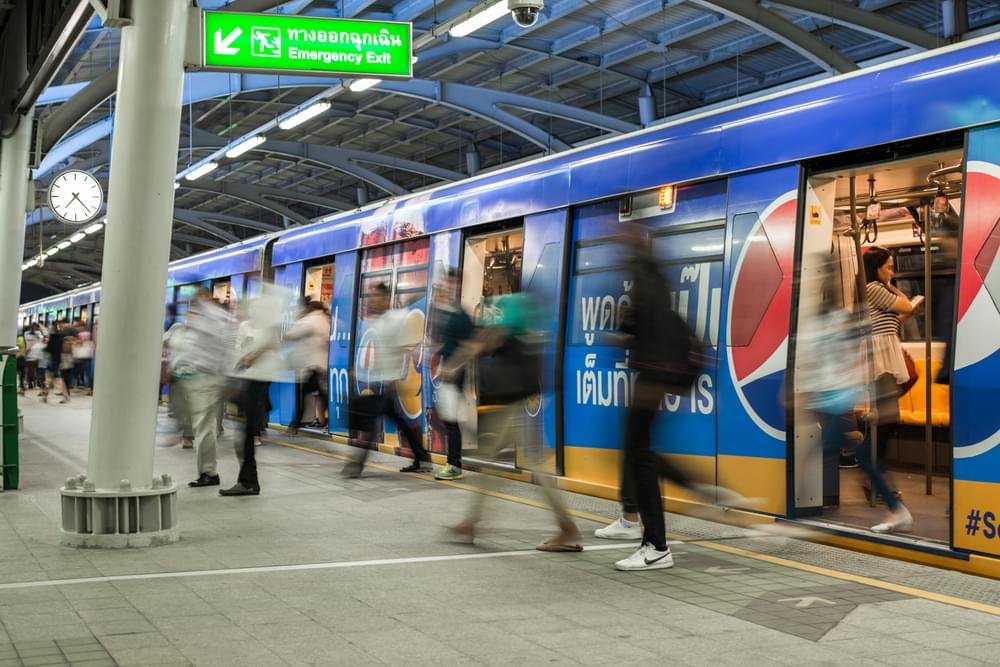
Thai Property Law is actually very straightforward when it comes to foreign property ownership. To keep things simple, foreigners are allowed to own:
- “Condominium Freehold Titles” simply known as Condos.
- Building and/or structures (Distinct from the land they sit on).
It is important to note, Foreigners cannot directly own “Land” in Thailand.
The “Condominium Freehold” is a special legal title and is the most straightforward form of property ownership for foreign nationals. Condominium laws and regulations are contained within the Condominium Act B.E 1979 and its subsequent amendments.
Explained simply, Condominium Freehold Titles are:
A division of a building into individual condominium units; whereby each condo benefits from proportional co-ownership of common areas (I.e., Condo facilities, pool, gym, car park, etc.) and interest in the co-owner association/ juristic person office.
According to the Condominium Act:
Foreigners are legally able to purchase up to 49% of the registrable area of a Condo Project (Foreign Quota). The remaining 51% can only be owned by Thai nationals or Thai entities.
Therefore, foreigners looking for straightforward and hassle-free property ownership in Bangkok are advised to consider buying a condo.
For additional info about foreign property ownership laws in Thailand:
Can Foreigners Buy Property in Thailand?
2. Choosing Resale Properties or Off-plan Projects.
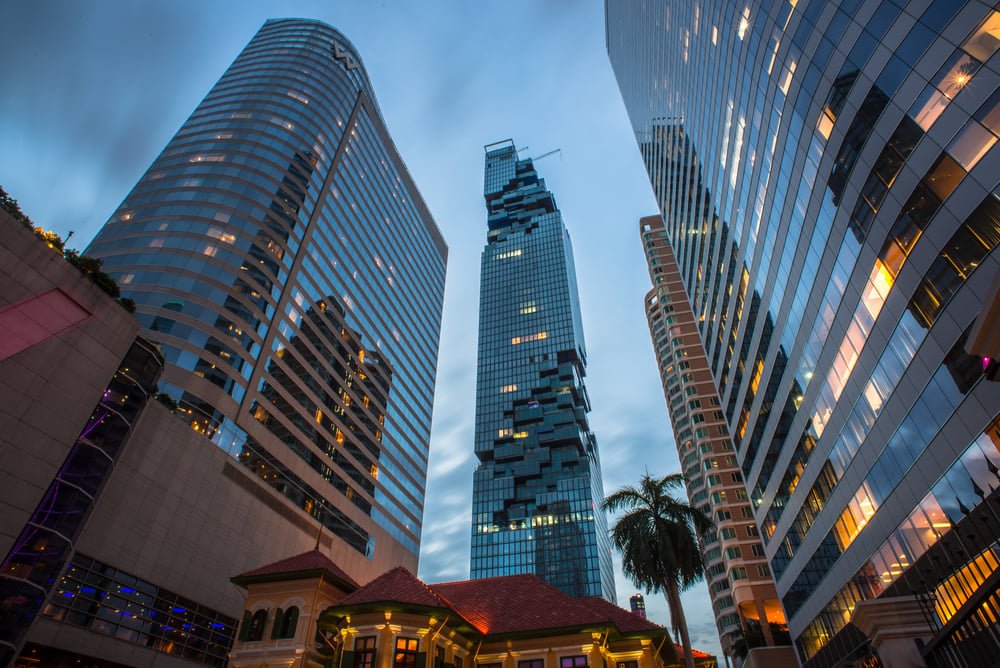
Bangkok’s urban landscape is continuously changing and residential developers are actively launching new projects throughout the city. This means that homebuyers and investors are usually faced with two choices:
- Buying resale properties on the secondary market.
- Buying off-plan projects direct from the developer.
Here is a brief overview of the advantages and potential disadvantages of both options:
Buying Resale Properties
Buying resale properties on the secondary market essentially means buying a completed condo from another landlord. This means the property is immediately available to use and move-in.
Properties on the secondary market tend to have more “price transparency”, as condo units tend to be publicly advertised by real estate agencies and individual landlords online through property portals. Therefore, this allows buyers to carefully compare sales prices and potential rental rates. Resale properties also tend to be offered at a more competitive price per square meter compared to their “off-plan” counterparts.
However, depending on the age of the residential building and the condition of the individual unit, potential buyers may face more immediate maintenance and renovation expenses.
Buying Off-Plan/ Buying New Builds
Buying off-plan is simply buying a condo that has just been launched or still under construction directly from a developer. Residential projects in Bangkok usually have a construction timeline of between 1-3 years. Therefore, potential buyers would have to wait before being able to use the property.
The primary advantage offered to buyers is the ability to pay in instalments; usually, 30% when signing the sales contract and 70% upon completion. This instalment system of payments allows buyers to fix the price of a condo today for a property that will complete in 1-3 years.
Another major advantage is that the property being purchased will be completely new and the condo’s interiors will be under warranty by the developer for a period of 1-year. This is usually a popular option especially for Asian buyers that generally prefer to buy new builds.
A big issue with buying off-plan residential projects in Bangkok is usually that their “brand new” status comes at a premium; new projects tend to be more expensive on a price per square meter basis, compared to competing secondary market condos.
Although a very rare occurrence in the Capital, buyers should be aware that there is always a possibility of “non-completion” if the developer runs into construction or financial issues.
For more information about Off-Plan/ New Builds:
First Time Buyer Guide: Bangkok Off-Plan Condos
3. Property Search Factors to Consider
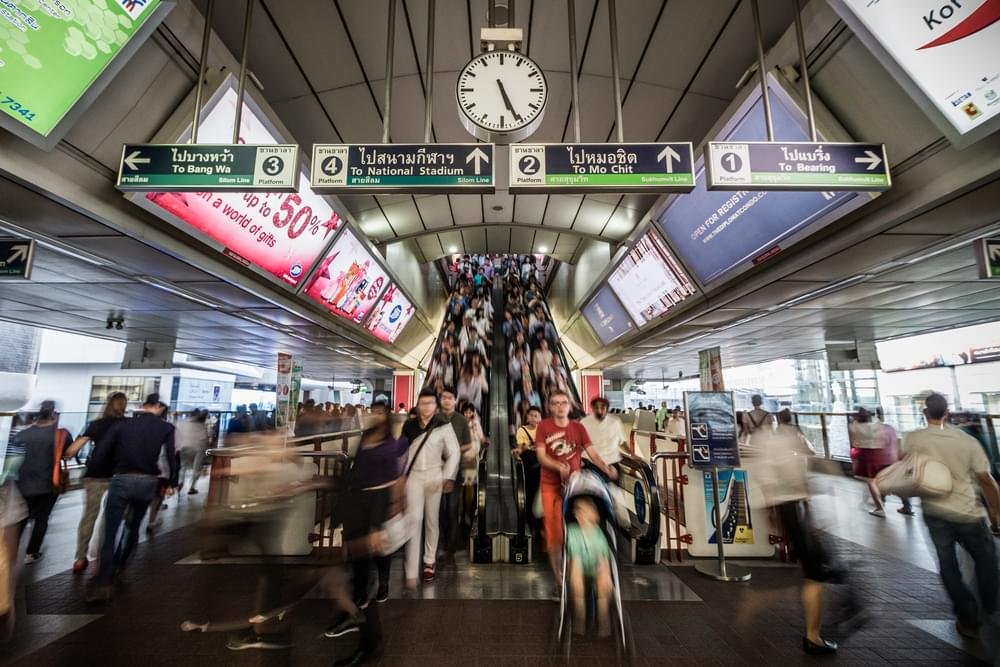
Starting a property search in Bangkok can be incredibly overwhelming, especially with the multitude of condo projects offered.
3 fundamental factors tend to determine the attractiveness and potential investment success of a property in Bangkok:
1. Location
In Bangkok where traffic congestion is a daily struggle, residents rely heavily on the Mass Transit Lines (BTS/MRT). Location is everything and any potential investor looking for a viable buy-to-let investment usually needs to consider projects within close proximity to a BTS or MRT Station.
Secondly, it is important to do careful research into the dynamics and demographics of the local neighborhood. As certain areas are more popular than others and by understanding local residents it is possible to establish the right rental rates and estimated acceptable sales price ranges.
2. Condo Project and Property Specifications
Linked to the “location factor”, it is important to quickly establish the price-to-size ratio (Price per square meters). By calculating the price per square meter of a specific property it is possible to do an evaluation of that price compared to other units in the project; possibly even comparing the price per square meter of a specific property to other condos in neighboring projects.
It is also important to consider the condo’s general layout, size, floor and orientation. Finally, condos in Bangkok now offer a range of facilities and residents have come to expect high-quality common areas. Therefore, buyers should evaluate the facilities such as the lobby, pool, gym, etc.
3. Developer and Building Management
In Bangkok, the local market is increasingly brand driven and the projects of certain developers are highly sought after. While not imperative, it is always a good idea to consider projects from well-known developers as they tend to benefit from more market recognition and are usually more popular.
Secondly, projects from established developers usually benefit from well-planned building management operations. Some of the capital’s top developers have even setup facilities management subsidiaries to run and manage their developments. Building management and maintenance is a key factor in ensuring that the condo holds its value in the long-term.
Read more about Bangkok’s Top Residential Developers:
The Top 10 Largest Property Developers in Thailand
4. Where to Buy Property in Bangkok?
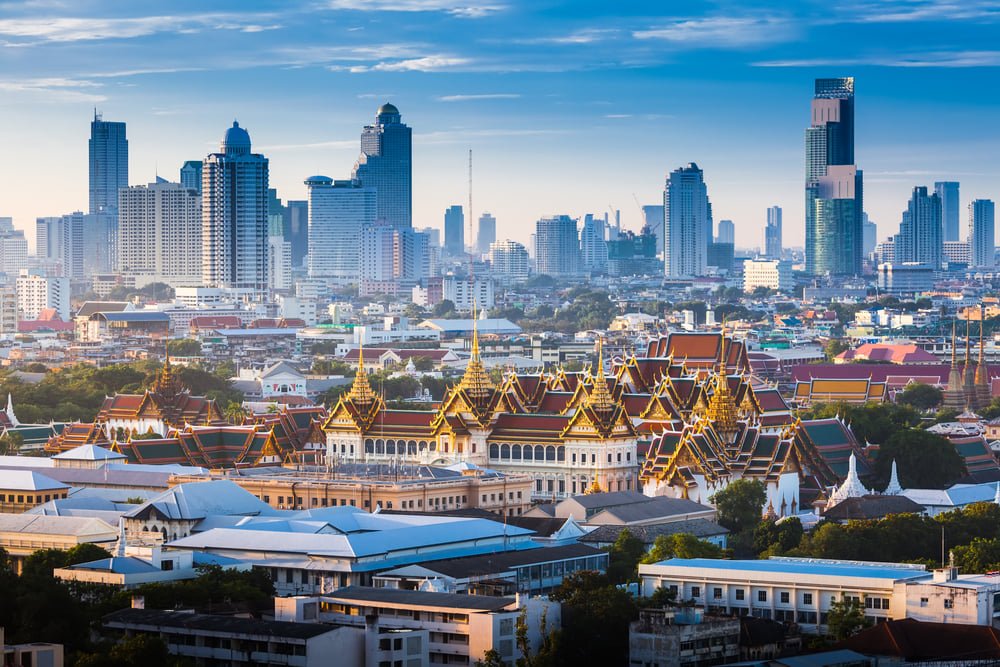
The old mantra “Location, Location, Location”, is an important concept that plays a huge role in finding attractive condo investments.
Anyone considering buying a property in the Capital will usually need to choose between the Central Business District or buying in Outer Bangkok.
1. Bangkok’s Central Business District (CBD)
Bangkok’s rental market is primarily expat-led and this market tends to cluster within the Central Business District.
The primary neighborhoods that form the CBD are:
- Sukhumvit (BTS Nana- BTS Ekkamai)
- Silom-Sathorn (BTS Saladaeng/MRT Silom- BTS Chong Nonsi)
- Wireless-Ploenchit (BTS Ploenchit, BTS Chidlom, BTS Ratchadamri)
- Rama 9- Ratchada (MRT Rama 9- MRT Thailand Cultural Center)
These neighborhoods are host to Bangkok’s major office and business centers making them appealing residential neighborhoods for the city’s working professionals. The CBD also offers an incredibly vibrant living environment full of leisure venues such as luxury malls, restaurants and nightlife.
As a result of the convenience and desirable lifestyle they offer, real estate in the CBD neighborhoods tend to be expensive. With some super-luxury residences in the top addresses in the capital (I.e., Chidlom, Ploenchit, Ratchadamri) fetching prices over 300,000 THB per square meters. This has an inevitably downward pressure on rental yields which tend to average between 2- 4.5% in Central Bangkok!
2. Outer Bangkok
Any neighborhood located outside the areas mentioned above are usually categorized as Outer Bangkok or peripheral locations. Despite their unflattering title, some of these areas offer incredible opportunities to investors!
Developable land in the Central Business District is becoming increasingly scarce and expensive; therefore, several residential and commercial developers have started to shift their attention to non-central areas. These peripheral neighborhoods, therefore benefit from modernization and gentrification as a result of new developments.
Real estate in Outer Bangkok is competitively priced and due to their lower entry points offer higher capital appreciation potential. Also, since the starting price of residential projects is lower, achievable rental yield can be higher between 4.5- 8% per annum.
However, Outer Bangkok locations often are under-developed and in some cases are not established residential neighborhoods. Making it difficult to rent and hard to eventually resell the projects in these locations. Therefore, buyers are advised to do careful research before committing to non-central areas!
Where to buy in Bangkok is an extensive and broad subject!
Here are more resources to familiarize yourself with Bangkok’s urban landscape and market trends:
Where is Bangkok’s Central Business District?
The Best Bangkok Neighborhoods for Expats to Live!
Where are Bangkok’s Next Real Estate Investment Hotspots?
5. The Condo Buying Process
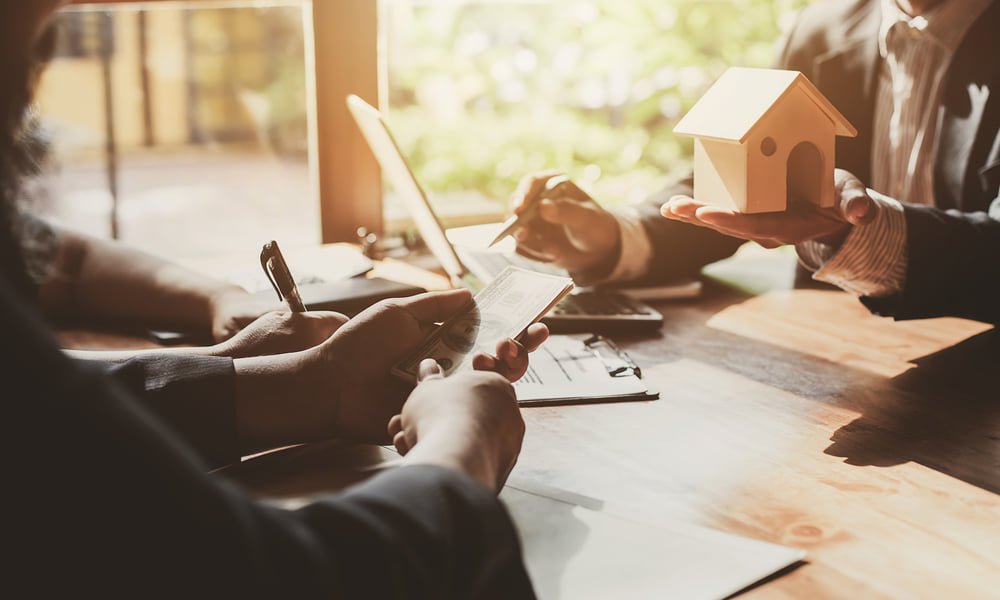
In this section, the property buying process for foreigners from “offer to transfer” will be simplified and explained in easy-to-follow steps:
Step 1: Offer and Negotiations
Once you have found the right property, the negotiations can start. When making an offer it is always important to carefully mention and agree upon:
- Desired Sales Price.
- Sales Taxes and Transfer Fees Share. *
- Property Sold Fully-Furnished, Partially-Furnished or Unfurnished.
- Approx. Transfer Date.
*In Bangkok the general standard is the Seller is responsible for all the sales taxes however transfer fees are generally shared equally 50/50 between both parties. This may not be the case for all transactions and it is important to reconfirm rather than assume.
Step 2: Preliminary Checks, Offer Letter and Deposit Payment
Preliminary Checks
At this stage, it is worth appointing a Lawyer especially before committing to any deposit or written agreement. Before proceeding to a more advanced stage of the process, a copy of the following documents should be requested:
- Chanote (Title Deed)
- Landlord ID or Passport
- Tabien Baan (House Registration Book)
- Property Agency Agreement (Showing that the Agent was instructed to act on behalf of the landlord)
- With these documents, it will be possible to quickly establish whether the Seller and Agent have the authority to sell the property.
Offer Letter
Once everything has been checked to avoid potential disagreements at a later stage in the process, it is important to obtain a written offer letter or letter of understanding (Signed by all parties notably the seller, buyer and agent as witness).
This letter will outline agreed details of the purchase notably:
- Seller confirms he is the owner and has full authorization to sell the condo.
- Agreed sales price.
- Deposit amount.
- How sales taxes and transfer fees are shared.
- In case of unsuccessful transfer details of penalties for the seller and buyer.
- Property sold with furnishings or unfurnished.
- Mutually agreed transfer date.
Payment of Sales Deposit
Once an offer letter is signed and confirmed by all parties (With copies of ID certified), it is safe to pay a deposit to reserve the condo. In Bangkok, there is no standard deposit amount and this can range from 3-5% of the selling price. The deposit amount can usually be negotiated with the seller on a case-by-case basis.
Step 3: Extra Due Diligence and Signing the Sales and Purchase Agreement
Due Diligence
Once the deposit is paid, the property is officially taken off the market and there is less pressure on the seller and buyer. Therefore, this gives breathing space to the buyer to conduct more extensive legal due diligence.
Legal checks include:
- Compare the copy of chanote (Title Deed) with the original held at the Land Office.
- Ensure there is no mortgage or charge on the condo.
- Recheck all details of property provided (I.e., Size, chanote number, and registered owner)
Once all the legal due diligence process is completed signing of the Sales and Purchase Agreement can take place.
Step 4: Property Transfer Preparations (Document Preparation and Buyer Overseas Money Transfer)
At this stage, the lawyer or property agent will start preparing all the documents for transfer and will calculate the exact government taxes and transfer fees that will be due upon transfer.
Also, if the property was purchased using a mortgage the exact split between the bank/financial institution and the seller will be calculated; if the property was acquired via a mortgage a bank officer will need to be present on the day of transfer to write-off the loan.
Buyer Document Preparation
The buyer will need to prepare a few documents for the day of transfer:
- Original Passport
- Copy of Marriage Certificate (If married)
- Spouse Consent Form (If married)
- Again, if married, spouse will need to be present on transfer day (If this is not possible, a Power of Attorney will have to be prepared)
- Name of buyer’s mother and father (For Land Department records)
- Cashier cheques and cash (For property, bank/financial institution if applicable, and government taxes and fees if applicable)
- Foreign Exchange Transaction Form (FET) *
*Foreign Exchange Transaction Form (FET)
This is an important part of the purchase process for foreigners as it is an important step in complying with the Condominium Laws. In order to be permitted to buy a condominium in Thailand, the foreign buyer will need to provide a Foreign Exchange Transaction Form (FET). This “FX Form” is provided by a Thai Bank and is proof that money was received from overseas in foreign currency.
More info about the Foreign Exchange Transaction Form (FET):
Foreign Buyer Guide: Transferring Money to Thailand and Opening Bank Accounts
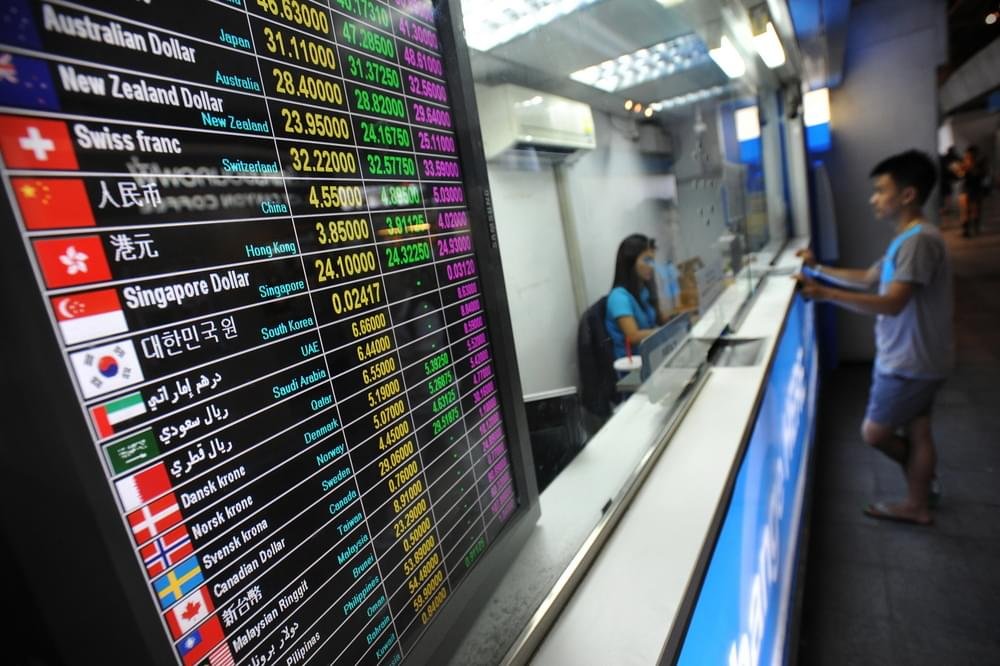
Seller Document Preparation
The Seller will also need to prepare documents and items for transfer:
- Original Thai ID Card or Passport
- Copy of Marriage Certificate (If married)
- Spouse Consent Form (If married)
- Again, if married, Spouse will need to be present on transfer day (If this is not possible, a Power of Attorney will have to be prepared)
- Original Chanote (Title Deed)
- Original Tabien Baan (House Registration Book)
- Foreign Quota Certificate
- Quit Claim Deed (Certificate of no debt issued by Condo Juristic Office)
- Electricity Meter Deposit Receipt and Up-to-date Utility Bills
- Warranty Cards of Electrical Appliances (If any)
- Original Developer Welcome Pack (If any)
- Keys, Key Cards, Access Cards, Parking Stickers, etc.
- Cashier Cheque and Cash (For the payment of Government Sales Taxes and Transfer Fees)
Step 5: Land Department Transfer and Post Formalities
Land Department Transfer
Each condominium project is within the catchment area of a specific Land Department Branch. The property agent or lawyer can reconfirm the exact Land Department for transfer of the condo.
Once all the paperwork and funds in Step 4 are ready, all parties can set an appointment at the Land Department to complete the transfer. If either the buyer or seller cannot be present on the day of transfer a Power of Attorney needs to be prepared beforehand. Also, if the Unit is mortgaged, the representative from the bank/financial institution will need to be present on the day to write-off the loan on the condo.
On the day of transfer, it is important to ensure:
- Buyer prepares cashier’s cheques in the exact amount for the seller and bank/ financial institution (If applicable). If the buyer is also responsible for any transfer fees or sales taxes, they should prepare a cashier’s cheque below the required amount (Payable to the Thai Ministry of Finance) and prepare extra-cash for the remaining amount.
- Seller prepares a combination of cashier’s cheque and cash to pay for transfer fees and sales taxes.
If all the documents and funds have been correctly prepared the Land Officer will be able to successfully complete the transfer. The Seller’s name will be taken-off the Chanote (Title Deed) and replaced by the new buyer.
Post Formalities
Once the transfer is completed the seller will hand over his Chanote (Title Deed), Tabien Baan (House Registration Book) and all items related to the property (Welcome pack, keys, access cards, etc.)
It is also important to ensure, transfer of utilities documents (Electricity and water) have been signed and deposit of electricity receipt has been received. This is to ensure a smooth transfer of utilities to the new buyer. Finally, it is also important to contact Building Management of the condo and provide them with details of the new landlord for their records.
6. Condo Financing and Mortgages
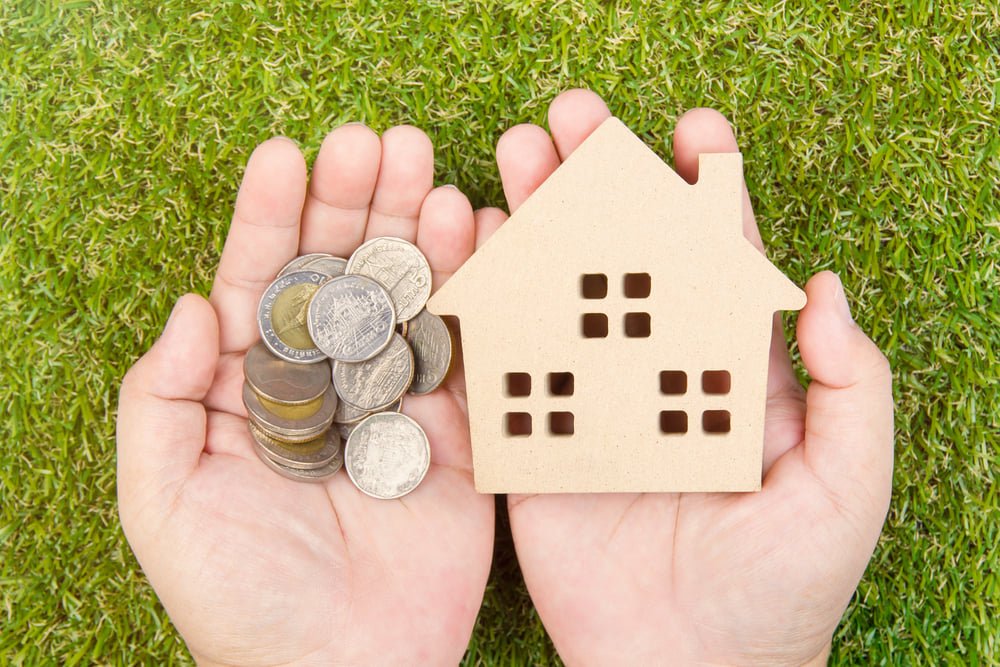
This is a hot topic and foreign investors often inquire about the possibility of obtaining financing to purchase Bangkok condos.
So, can foreigners obtain financing from local banks to purchase property in Thailand?
The short-answer is yes, certain banks and financial institutions do provide mortgages to foreign nationals. Unfortunately, it is important to note that generally very few Banks offer these mortgages and application requirements are very strict. Secondly, the mortgage conditions such as the loan-to-value, repayment terms and general interest rates tend to be offered at relatively uncompetitive rates compared to local Thais.
Thai financial institutions often only approve loans to non-Thai buyers with strong financial profiles; in many cases, they require buyers to be employed in the Kingdom with a valid Thai work permit and visa. Therefore, it is advised to only consider seeking financing, if the purpose of purchasing the property is to acquire a home rather than an on-going buy-to-let investment.
Some companies that actively offer financing options to foreigners include:
- MBK Finance
- UOB
- ICBC
For a Complete Guide to Foreigner Financing in Thailand:
Foreign Buyer Guide: Property Mortgage Loans in Thailand
7. General Cost of Owning a Condo in Bangkok
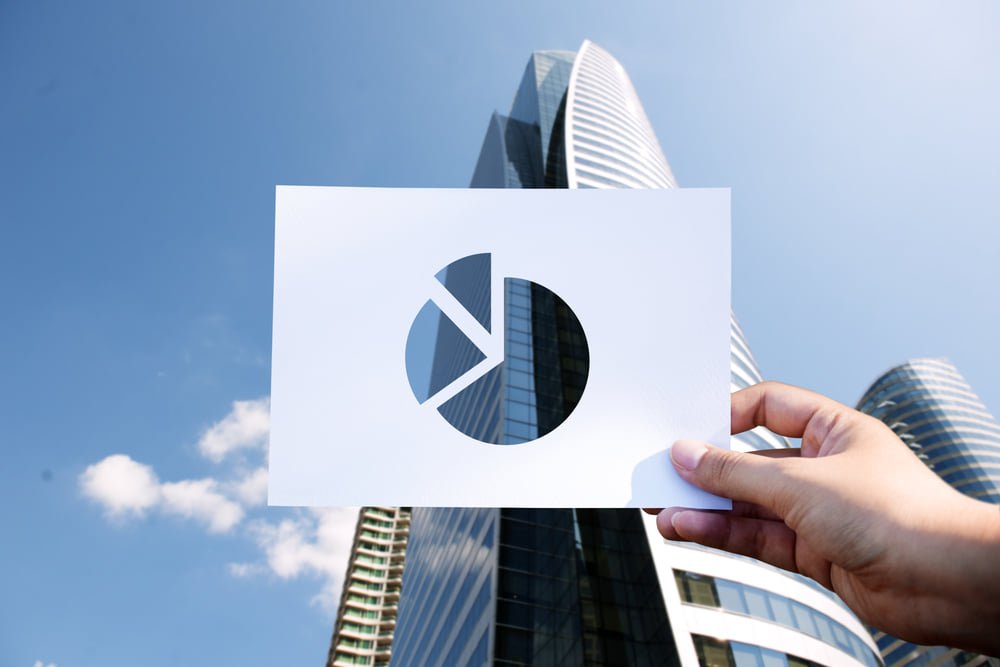
Whether you are a homebuyer or investor the expenses of owning and maintaining a condo will inevitably be an important consideration!
The 3 major expenses property owners will face are usually:
1. Property Agency Fees
If you are a rental investor, it is very likely you will instruct real estate agents to market your property. In Bangkok, property agents charge the following standard marketing fees:
1 Year Lease Signed= 1 Month Rent
2 Year Lease Signed= 1.5 Months’ Rent
Real estate agents do not charge for lease agreement drafting or marketing material production (I.e., Photos, Videos, etc…).
Also, just as a point of information, the standard sales commission is usually 3% of the selling price in the Capital.
2. Common Area Management Fees (CAM Fees)
Condo will usually have a building management team and common areas to maintain. Therefore, to ensure that the property’s condition is properly maintained the Building Management will charge a CAM Fee. This is usually charged upfront for 1-year and it usually also includes “building insurance” in case of major disasters such as flooding, fires or structural issues.
3. General Expenses & Taxes
Landlords are obviously responsible for the utility bills such as water and electricity; if the property is rented, this expense is the responsibility of the tenant. In Thailand’s tropical climate, aircons usually need to be maintained and cleaned internally 2 times a year to ensure they operate in an optimal manner.
Now time to discuss the dreaded “Property Taxes” …
Normally, landlords are expected to declare the income received from renting a property and they are responsible for filing their end of year income taxes.
Another new tax recently enforced is the “New Land and Building Tax”; at present this tax is inconsequential, usually a few hundred baht even for 2-3 bedders in Central Bangkok.
For more info about the cost and expenses of owning a condo:
Bangkok Condo Investment: Ownership Expenses & Maintenance Costs
8. Market Research and Resources

Bangkok has a multitude of neighborhoods and literally hundreds of potential condo projects. Therefore it is important to do careful due diligence into local market trends, buyer demand and rental demand for an area.
Unfortunately, most reports and market data tends to be available only in Thai. However, a few good English resources to get an overview of general market conditions and trends include:
1. Property Consultancy & Developer Reports
A few Real Estate Consultancies publish quarterly or annual market trend reports that can provide insights into Bangkok’s dynamic property industry. This includes CBRE Thailand, Knight Frank Thailand and Colliers International Thailand.
Some Thai Developers listed on the stock exchange publish annual financial reports in English. These reports often include unique insights into Thai real estate market trends and Bangkok’s urban development forecasts.
2. Newspapers and News Outlets
The Bangkok Post and The Nation newspaper are two national newspapers with active property editorials.
3. Exhibition and Events
Another way to get a feel for the general market is to attend Property Exhibitions by Developers that are popular with local buyers. The biggest event for Bangkok is the “House and Condo Show” that takes place twice a year and showcases the projects of some of the capital’s top developers.
Fresh Property Exclusive Guides, Reports and Articles!!!
On a final note Fresh Property understands the need for buyers to research and understand local market trends. Therefore, we constantly research and publish useful guides, reports and articles for the benefit of potential homebuyers and investors!
Here are some extra resources you might find useful:
The Ultimate Bangkok Condo Buyer Guide
The Most Exclusive and Expensive Areas in Bangkok
Where to Buy Property in Bangkok?
Bangkok Property Investment: A Guide to Buy-to-Let Condos
Thailand Investment Visa: Can you buy a condo and get a long-term visa?
Fresh Property is a real estate agency offering consultancy, sales, rentals and property management services in Central Bangkok. Interested buyers are welcome to browse our large selection of new off-plan projects and resales properties. Alternatively, feel free to contact us on [email protected].

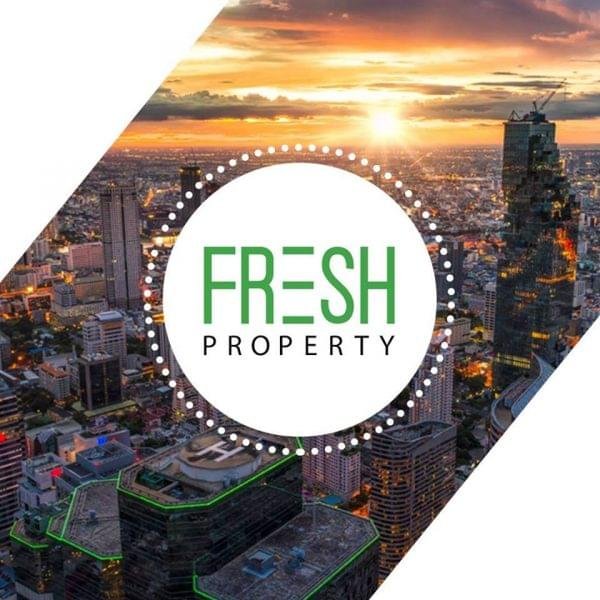
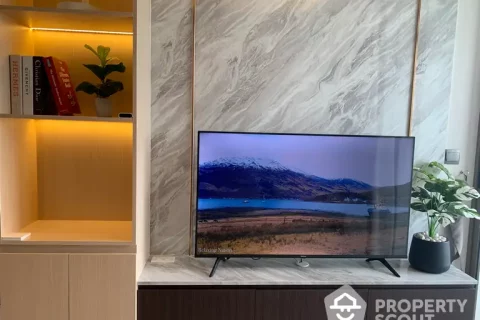
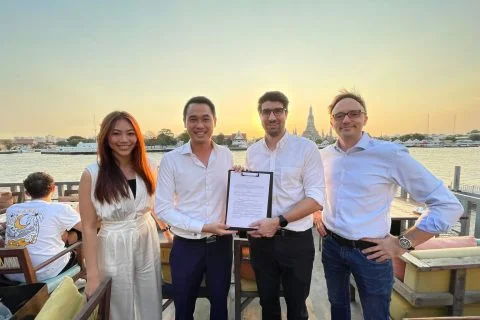
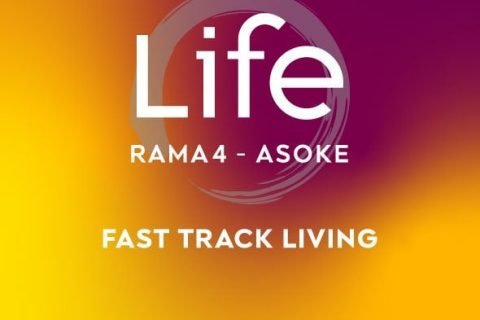
Millennium Bangkok says:
Thanks to share such a informative blog.
Ken says:
Can i buy a freehold property in the outskirts of Bangkok, like a detached house?
Fresh Editorial says:
Hi Ken,
Yes, it is possible.
However, please kindly note that non-Thai nationals are legally not able to own land.
Regards,
Fresh Property Team
Moe Swe says:
Thanks for sharing .. it is very useful guide..
Bella says:
Hi there,
I am a Vietnamese passport holder, looking to purchase a condo unit in Bangkok, anywhere near MRT station. Would you please recommend me a good realestate agent. My whatssap is +84903335657
Thanks,
Bella
Chris says:
What an intelligent and useful site. Thank you! 🙂